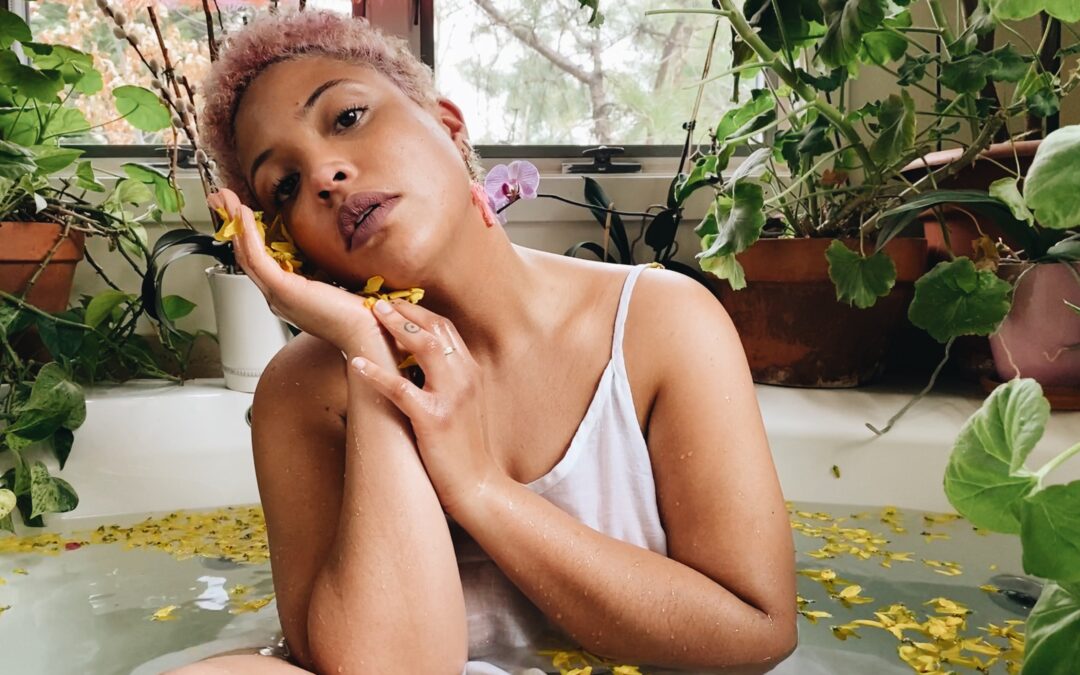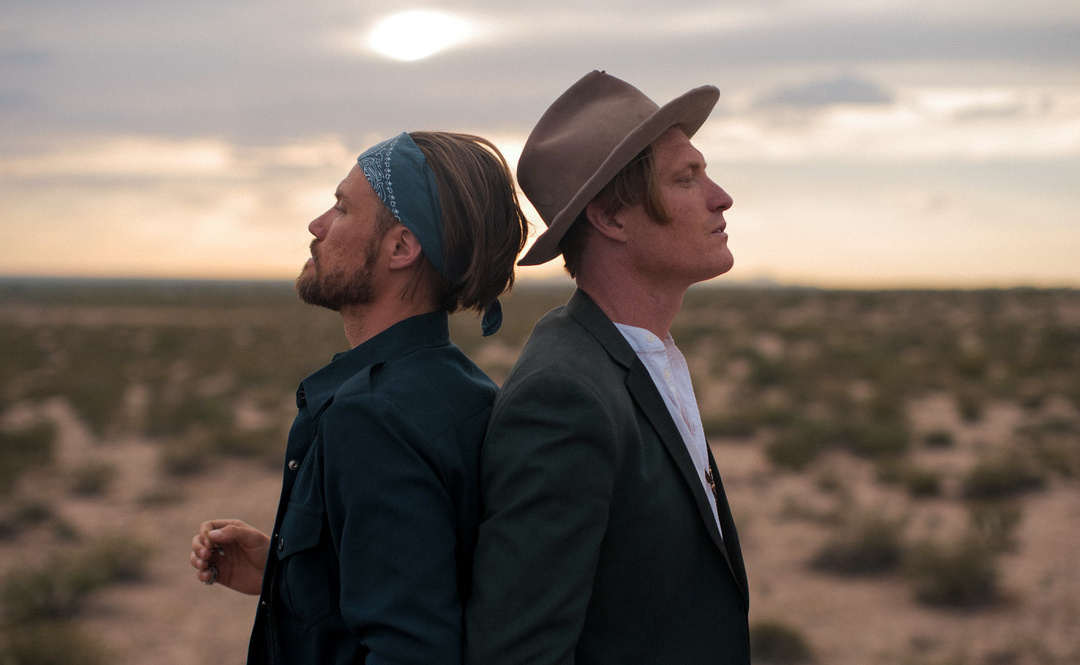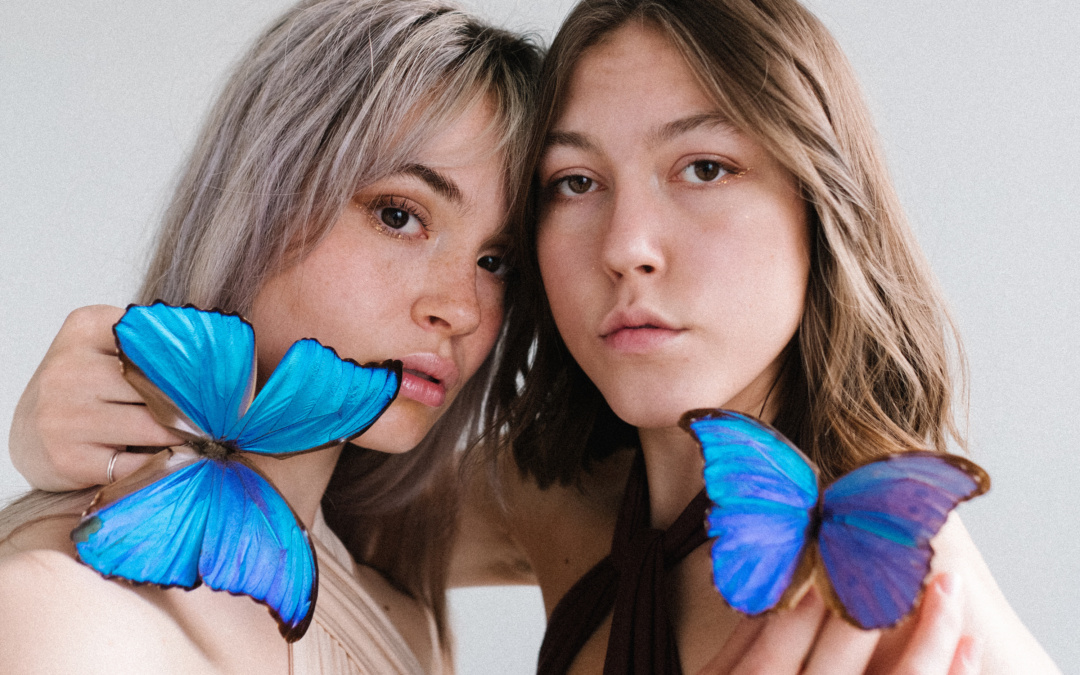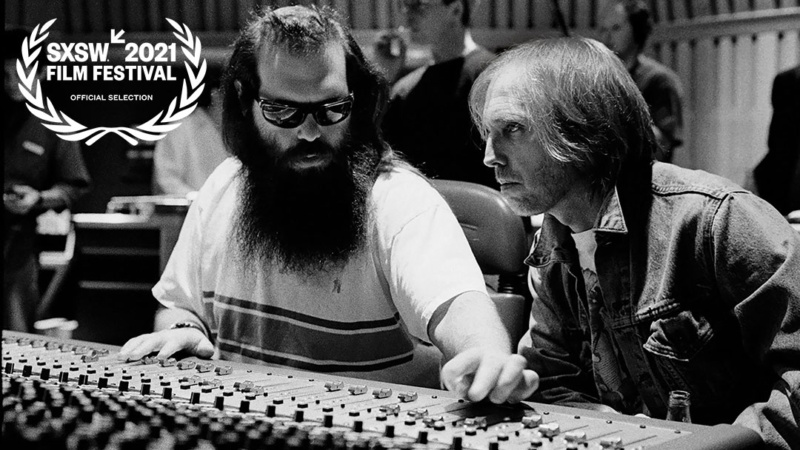
by Elizabeth Schneider | Aug 16, 2021 | albums, review, wolf tracks
Pip Millett, the Manchester-born singer-songwriter, is ready to release her EP Motion Sick to an eager R&B audience.
Speaking on the EP, Pip states: “I have often felt lost when things around me have started to change. In recent times I’ve realized I’m simply ‘Motion Sick’. My core self is still there but without change there cannot be any growth. ‘Motion Sick’ is about the various changes in my life. With this change I have tried to find comfort in the simple things.”
Each of the songs on Motion Sick has a sound that harken back to an earlier time in music, but the song lyrics are very much topical. Pip Millett may have been creating songs that reflected changes in her life, but she is certainly in touch with what is important to others in her generation as well. Additionally, she has a voice quality that invites you to really feel what she is singing. The best examples of this are on “Best Things” and “Sad Girls” ft. Gaidaa.
“Running” ft. Ghetts is the first track on the EP and addresses the racist current that runs through our world. Intertwining Pip’s haunting lyrics with Ghetts’ raps, “Running” is an R&B anthem for our time:
[Ghetts]
Another black man lost, worried about what a handbag cost,
Whilst it costs to be black, I got a price on my head that’s not any cap.
Fed’s are behind, I feel like I’m wanted dead or alive,
Even after what I’ve accomplished nobody said they’d be kind.
“Hard Life” and “Braid it Back” round out the five-song playlist that makes up Motion Sick.

by Meredith Schneider | Aug 6, 2021 | albums, review, wolf tracks
From the first haunting chords of the intro track “Home” to the last, intimate notes in sixth song “Strange Fruit,” singer-songwriter and producer Naomi Westwater’s beautiful new EP Feelings delivers just that: Feelings with a level of palpability unlike other albums provide. The topic of “Home” is less relatable, as Westwater sings specifically of her personal struggles with endometriosis and its accompanying reproductive issues. And while the second song “Feeling My Feelings” began in the same realm topically, it slowly developed into an anti-violence track. “Reflecting on the song now, I think it is also a haunting mirror to gun and police violence. It’s for those of us who feel our pain and feelings are ignored by others,” she admits.
“Commune” keeps to a slow, danceable clip, while Westwater observes her own spirituality and how it is defined in her life. Her vocals are absolutely magnetic, just like the way she leans into her own spirituality. While “Strange Weather” launches into a discussion on climate change, it does so in a beautiful and poignant way, never straying from the overarchingly soulful power of the collection. Explains Westwater:
This project felt like a storybook, like a complete collection of things that I’ve been meaning to say to the world, things I need to scream out into the void, and things that I need people to hear. These songs were all written at different times: ‘Strange Fruit’ in the 1930s, ‘Americana’ in 2012, and the others in the last few years, but the stories are so relevant to now.
Keep up with Naomi Westwater here.

by Meredith Schneider | Jun 28, 2021 | albums, review, wolf tracks
Isaac and Thorald Koren – or The Brothers Koren – recently released their debut collection of tracks, an exquisite full-length titled I Went To The Sea To Be Free. Dedicated to the memory of their grandmother – who flew her plane over the Southern Ocean on Mother’s Day of 1974 and was never seen again – the album itself is laced with a sense of longing in the emotional lyrics. It’s hard to believe that the brothers approached music separate from each other, and later discovered their co-creating abilities. Their harmonizing abilities are almost haunting in a way, as displayed in tracks like “Say Everything”, “Gold”, and “Like Water”. (And virtually every other gorgeous track in this collection.)
Beginning at a leisurely clip with “Easy,” the album is introduced to us in a lighthearted, open-minded way. The song itself encourages its listener to take things as they come, while the brothers sing of how easy life can be with the right person. They transition with ease into the remaining thirteen tracks, presenting a true storytelling ambiance to the piece. Their cover of Prince’s 1984 hit “I Would Die 4 U” would otherwise fall short however the single has been stripped down into a different realm than its existing danceable pop energy, highlighting the love letter nature of it all. Crowd favorites include “Like Water”, “Beyond the Wild”, and “More Than You Know”.
Keep up with The Brothers Koren here.

by Elizabeth Schneider | Jun 18, 2021 | albums, review, wolf tracks
Canadian duo Mayfly, comprised of Emma Cochrane and Charlie Kunce, have released their first EP ESSENCE. Both women are singer-songwriters, as well as producers, on this gem. The highlight of each song is their extraordinary harmonies.
“The goal of the EP is to bring people in to our musical universe…The essence of Mayfly is simply our voices and how they blend together, how they create this sense of unification and harmony.” Mayfly has accomplished exactly what they set out to do and then some. They have created five songs that move effortlessly from one to another, with no weak songs in the playlist.
Kicking off with ‘to jules’, Mayfly sets the mood with a song that is almost delicate sounding. It is my favorite song on the EP and a great introduction to Mayfly’s sound. ‘When all we knew was us’ starts with an acoustic guitar and one voice, building to both Emma and Charlie harmonizing lyrics with an aching quality that permeates the rest of the song.
The third track, ‘tes larmes’ features Tendresse and Joudi and is sung entirely in French. It has a different vibe from the other four songs on the EP, like you might hear on the soundtrack of a movie, but with the same ethereal harmonies that permeate the other tunes.
‘Sad song’ and ‘show me the way out’ acted as companion pieces in my mind – the breakup song, then the resignation about the breakup song. ‘show me the way out’ has lyrics that we can all relate to on some level, even with a more sanguine melody – “I’m never getting out of here, even if I try.”
Mayfly has produced a very thoughtful and beautiful EP with ESSENCE. I look forward to hearing more from them!

by Elizabeth Schneider | May 3, 2021 | perspective, review, videos
Two documentaries caught my eye when I was planning my South by Southwest schedule in 2021. I felt fortunate to be able to see both of these as they had their world premiers.
The first of the two is Hysterical, a documentary that peeks into the lives of some of the most famous women in stand-up comedy. The cast includes Margaret Cho, Sherri Shepherd, Judy Gold and Kathy Griffin as well as many others as we learn about the beginnings of their careers and the roadblocks they experience to this day. Director Andrea Nevins moves deftly between subjects as they describe the lure of comedy. It’s an unvarnished portrayal of a life that each of these women are drawn to, but most of us can only imagine. No topic is off limits to these comediennes.
A particularly harrowing story is told by Kelly Bachman. She recalls telling jokes about Harvey Weinstein one night when someone pointed out to her that he was in the audience. People initially booed, but when she began talking about her own rape, the audience was on her side. Some of the other stories of sexism and discrimination are, unfortunately, as prevalent today as they were 30 years ago.
Hysterical is funny, poignant, and thought provoking. Exactly what you want a documentary to be. Hysterical is currently streaming on FX on HULU.
The second documentary was the eagerly awaited Tom Petty: Somewhere You Feel Free, the story of the making of his 1994 album Wildflowers. Because of recently discovered black and white 16mm film shot during the making of the album, Director Mary Wharton was able to have Tom Petty star in his own movie. Current interviews with former band members, producer and Petty’s daughter Adria, filled in the edges with stories and explanations. Wildflowers became, to most, Tom Petty’s best album, certainly his most perfectly formed. When it was released, it sold 3 million copies, but most people didn’t realize how much unreleased material was left after recording.
As the story unfolds in the documentary, Petty wanted to record a solo album (only his second) and Rick Rubin signed on as producer. It was the first album he had produced with Petty. Eventually, most of the members of the Heart Breakers would end up being session players on the album. Although the nuts and bolts of record producing are interesting, the more fascinating angle to me was the song writing. Petty was in the midst of a failing marriage and this was laid bare in the songs on Wildflowers. The interviews that were recorded with Petty in 1994 are especially touching, since his divorce would not occur until 1996.
Full disclosure: I am a huge Tom Petty fan, so had been looking forward to this documentary. Tom Petty: Somewhere You Feel Free did not disappoint – I felt grateful that all of this footage exists and that art, in some form or another, lives on after the artist has gone.
Wildflowers and All The Rest is a 2020 re-release of the Wildflowers album, but includes deleted songs, demos and live tracks.
Hysterical synopsis from SXSW:
Premiere Status: World Premiere
Runtime: 87
Language: English
Country: United States
Synopsis: HYSTERICAL is an honest and hilarious backstage pass into the lives of some of stand-up comedy’s most boundary-breaking women, exploring the hard-fought journey to become the voices of their generation and their gender. Premieres April 2nd on FX.
Cast: Margaret Cho , Fortune Feimster, Rachel Feinstein, Marina Franklin, Nikki Glaser, Judy Gold, Kathy Griffin, Jessica Kirson, Sherri Shepherd, Iliza Shlesinger, Kelly Bachman, Lisa Lampanelli, Wendy Liebman, Carmen Lynch, Bonnie McFarlane
Director: Andrea Nevins,Executive Producer: Andrea Nevins, Ross Girard, Jim Serpico, Jessica Kirson,Producer: Rebecca Evans, Carolina Groppa, Ross M. Dinerstein, p.g.a.,
Tom Petty Somewhere You Feel Free synopsis from SXSW:
Premiere Status: World Premiere
Runtime: 89
Language: English
Country: United States
Synopsis: Drawn from a newly discovered archive of 16mm film showing Tom Petty at work on his 1994 record “Wildflowers,” considered by many including Rolling Stone to be his greatest album ever, “Somewhere You Feel Free” is an intimate view of a musical icon.
Cast: Tom Petty, Rick Rubin, Mike Campbell, Benmont Tench, Steve Ferrone, George Drakoulias, Alan “Bugs” Weidel, Adria Petty, Stan Lynch, Howie Epstein
Director: Mary Wharton,Executive Producer: Warner Music Films,Producer: Peter Afterman,Cinematographer: Anne Etheridge,Editor: Mari Keiko Gonzalez,This film has not been rated.

by Meredith Schneider | Apr 30, 2021 | albums, review, wolf tracks
One of our favorite singer/songwriter extraordinaires – alt-folk artist EVVAN – has released a dreamy new 5-track EP, Home, and we’re certain it warrants a listen from music lovers of all genres. Never have we felt so much attitude without a hard blues influence in a folk track as we did with the initial track “Wolf.” (Wolf tracks are our favorite though. ;))
Second track “I’m Not Done Yet” is delivered with the fervor you expect from someone who is fully prepared for the next chapter of their lives. “So many times in my life I’ve heard the exact phrases I wrote in the song from friends who’ve experienced the same, from people who I thought were friends and didn’t accept me, from absolute strangers on the street who noticed I was different,” says EVVAN. “It is exhausting, and while there are times I feel beaten down and without hope, I remember this is who I am, and I should be proud of that.”
A track born from the emotions around wanting to come out, Evvan carries intense emotion with each word delivered, creating a beautiful ballad that feels like a torch held by and for all of those who feel other at times. If nothing else, this track is a testament to the artful soul of its creator.
“Hurricane” comes at a more steady clip, as EVVAN details a tumultuous relationship situation. “Falling Over You” speaks to a similar relationship, as the thoughts early in a relationship take over and confuse the hell out of our protagonist. Undoubtedly, this is a highly relatable track for the listeners. It’s also got a beautiful cadence that is absolutely captivating.
The title track rounds out this new release, more simplistic instrumentally than its predecessors, just as impactful. It really is the most freeing way to end the collection. If you have the opportunity, we highly suggest listening to the work in its entirety – as a full and honest adventure – below.






